Cub Cannibalism - A River Pride Tragedy
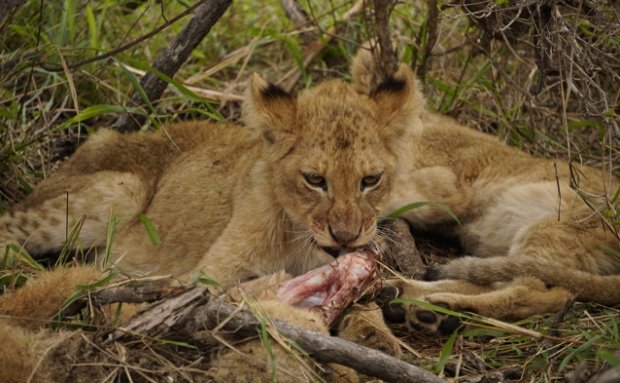
Tragedy has struck the youngest members of the iconic Klaserie River pride leading to a rare case of cannibalism observed between the lion cubs. Keep reading for the full story...
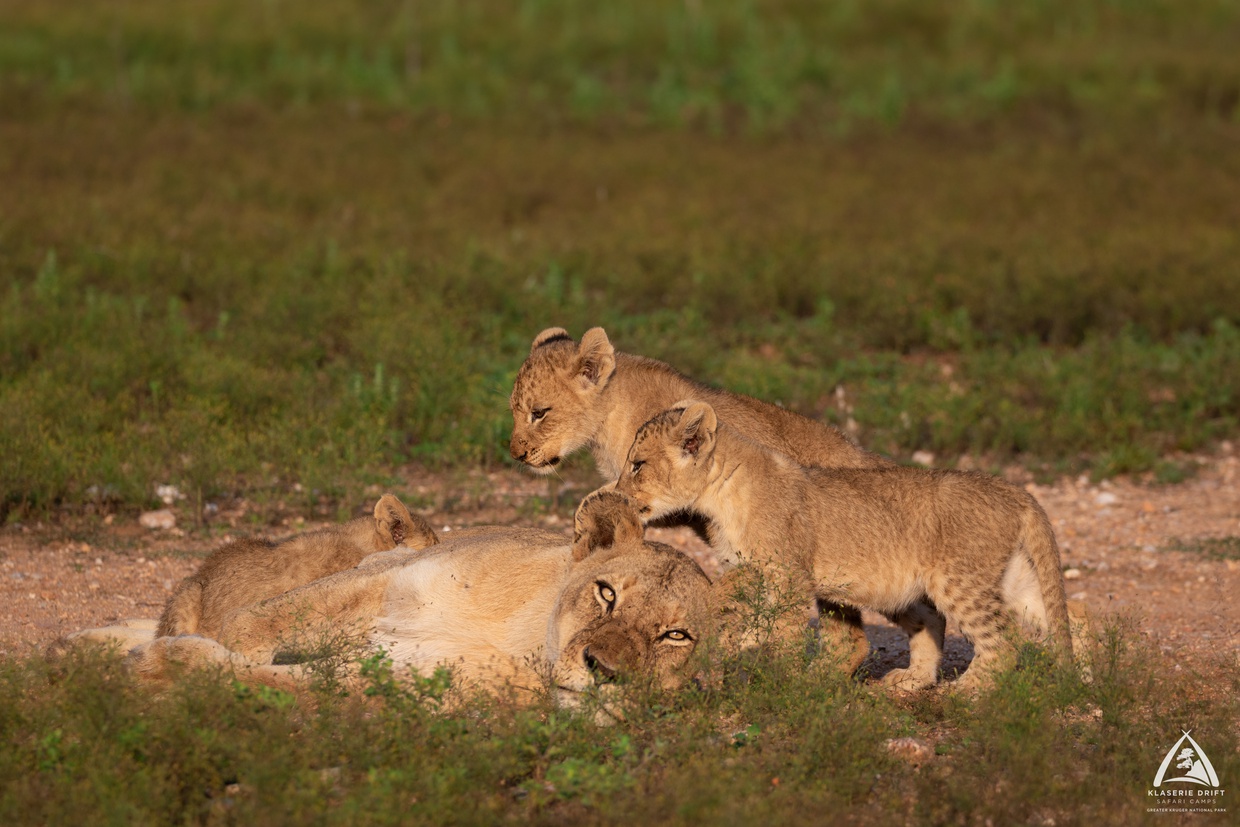 The young cubs earlier this year
The young cubs earlier this year
At the beginning of March this year, the Klaserie River pride – often referred to as a ‘super pride’ due to their relentless expansion to over 30 lions and lionesses under the watchful eyes of dominant males Hosi and Socha – added 3 more bundles of joy to their ranks. With the incredible success of the pride, having lost barely a single cub in the intervening two years, the guides at Klaserie Drift Safari Camps were quietly confident of another successful litter.
After spending their first weeks secreted away in a den, the three, chubby cubs were successfully introduced to the main pride, showing huge affection for their older cousins. For the next few months, the trio grew fast and thrived under their mother’s care. Nothing, it seemed, could stop these lions in their tracks.
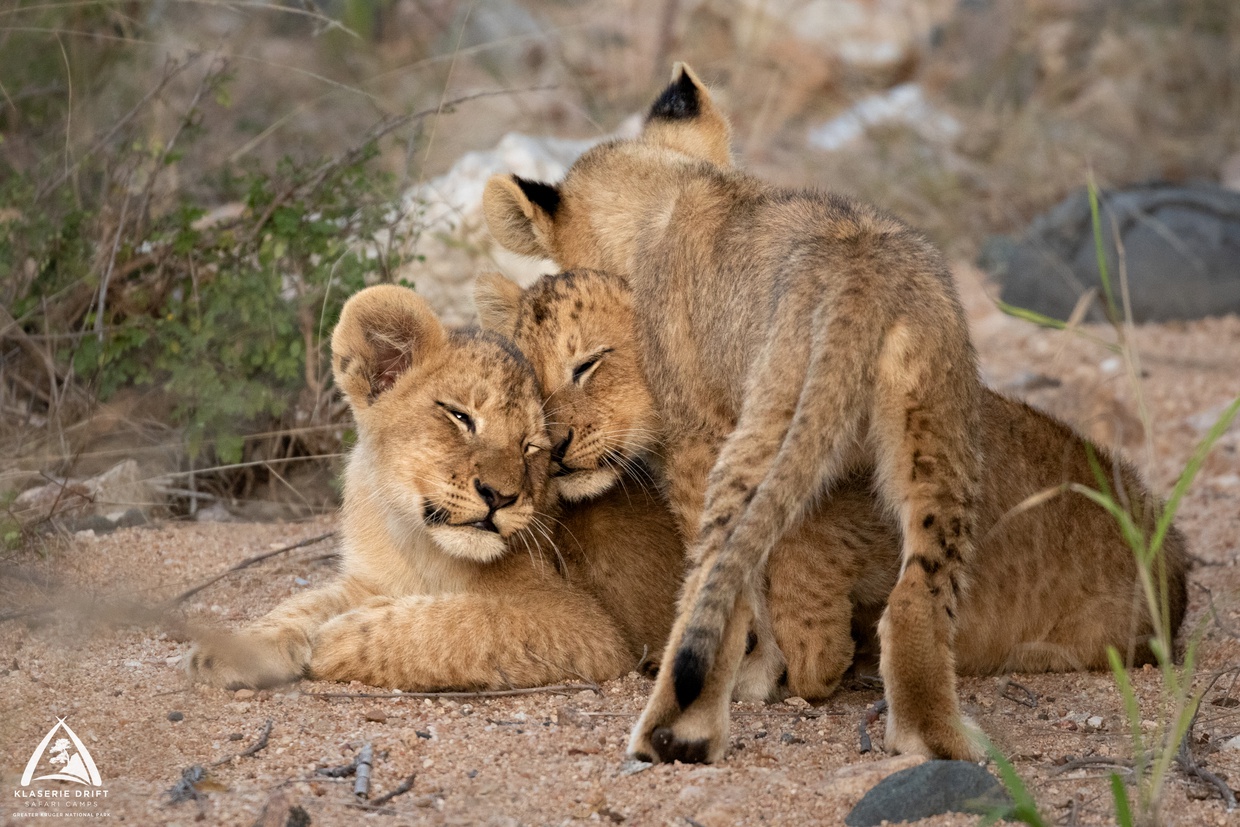 In happier times
In happier times
However, in early November, tragedy struck. With the cubs still not quite old enough to keep up with the pride full-time, guide Wesson visited their latest den site to be met with a scene of utter heart-break. One of the young lions had sadly perished and, to make things worse, its malnourished sibling was feeding on the carcass. The cause of death is difficult to determine, but the signs of malnourishment could mean it was simply starvation.
With so many mouths to feed in the pride, the cubs will feed last and may be left with little more than scraps or nothing at all. Wesson said that “it is unlikely to be another predator as the body wasn’t moved or fed on and the other two were not killed with it, which would be more typical predator behaviour. There was a lot of buffalo and elephant activity in the area at the time so it may have been sadly caught up in that activity or may have died due to natural causes”.
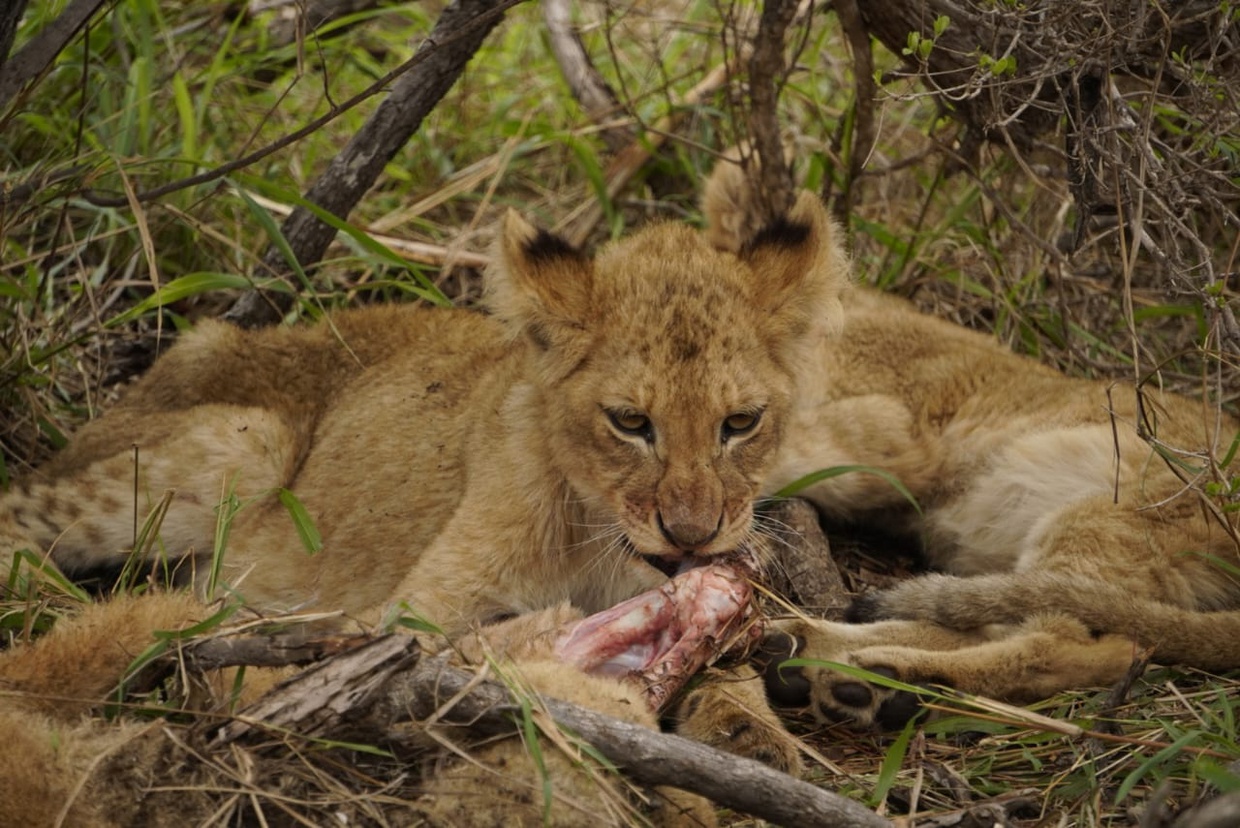 A devastating scene
A devastating scene
After a while, the mother lioness approached the area, contact calling her babies to come to her. However, the two remaining cubs were reluctant to leave their sibling’s side. They motioned towards their mother and returned to the spot, calling her back to them. Hesitant at first, she finally approached, at which point Wesson says the cubs “almost became protective of the dead cub, putting themselves between their mother and their sibling”.
Eventually, however, they relented and returned to feeding on the carcass, allowing the lioness to investigate. She exhibited a Flehmen grimace – where an animal pulls up its top lip and draws any scent particles into the highly sensitive Jacobson’s organ – to confirm that this was indeed one of her babies. At this point it is difficult to know exactly what she was feeling as we, as humans, have a natural tendency to anthropomorphise our emotions onto animals. Yet, knowing the exceptional bond that these social cats build with each other, she is certain to have felt something. Not wanting to intrude on such a sensitive moment for long, Wesson left the area shortly after, allowing the female to process the event in peace.
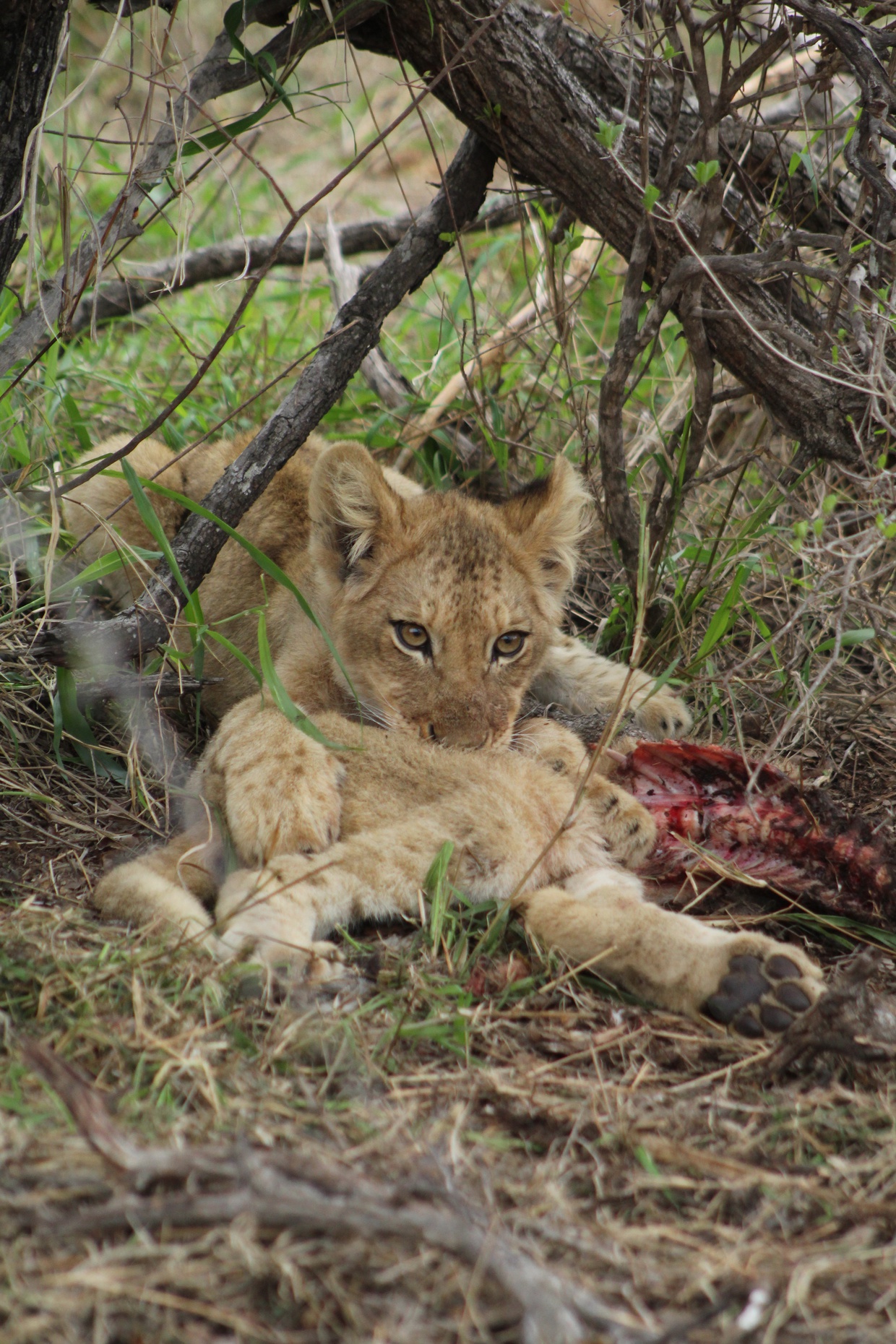 Though not exactly a common sight, it is also not unheard of for predators to eat their own kind. The reasons for such behaviour may be varied, for example one theory states a male lion is thought to cannibalise cubs during a takeover as a sign of dominance and a female might do it to remove the scent and not attract other predators. In this case, the two cubs were in poor condition so perhaps they resorted to cannibalism as a last survival instinct or perhaps it was simply an example of opportunistic feeding and the fact that it was their sibling was inconsequential. Unfortunately, we can’t ask them to find out.
Though not exactly a common sight, it is also not unheard of for predators to eat their own kind. The reasons for such behaviour may be varied, for example one theory states a male lion is thought to cannibalise cubs during a takeover as a sign of dominance and a female might do it to remove the scent and not attract other predators. In this case, the two cubs were in poor condition so perhaps they resorted to cannibalism as a last survival instinct or perhaps it was simply an example of opportunistic feeding and the fact that it was their sibling was inconsequential. Unfortunately, we can’t ask them to find out.
Sadly, since that fateful day, the condition of the remaining cubs appeared to worsen and on the last known sighting only one cub was present. At the time of writing, there have been no recent updates on the cubs and it is thought that all three may have perished.
Statistically, only one in three lion cubs survive their first year so, in actual fact, the incredible survival rates of the River pride of late have surpassed all expectations and perhaps this is nature’s way of balancing the table once more. Though heart-breaking to witness, especially when you have watched these little ones grow up over so many months, it is not our place to interfere.
An area is only able to hold so many predators before they begin to have a detrimental effect on the environment and prey numbers. As is the way of nature, life and death are intricately linked; the death of one animal gives life to another and, when we involve ourselves, we upset this delicate balance that has evolved over many millions of years. So, with sadness, we observe from the sidelines and hope that, soon enough, there will be new life again in the magnificent River pride.
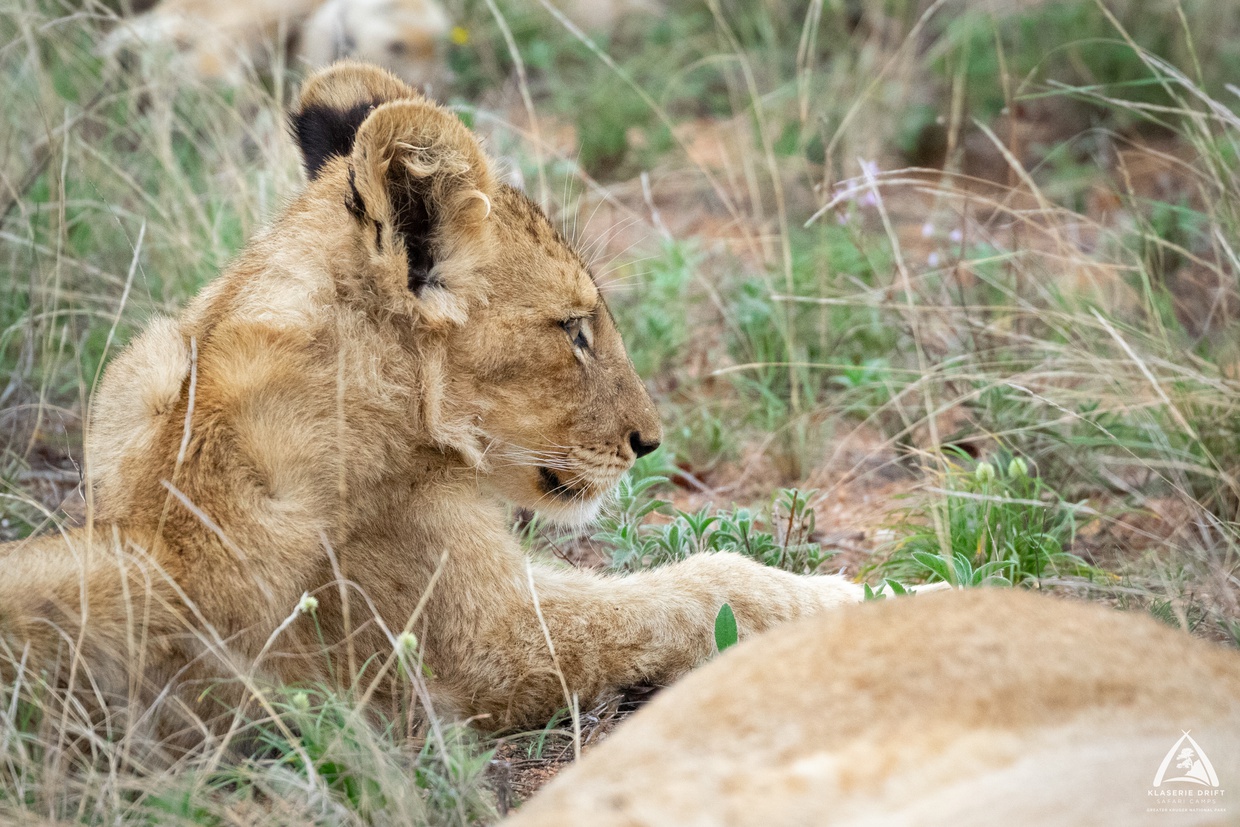 The last sighting of one remaining cub looking malnourished
The last sighting of one remaining cub looking malnourished
Words by Emily Whiting
Photos by Wesson Durant, Emily Whiting and Talitha Jansen





Share This Post